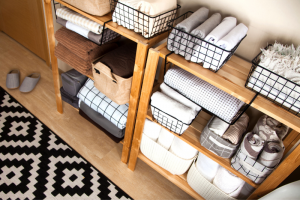When it comes to getting a mortgage, there’s no shortage of misinformation. Many homebuyers, especially…
Top 7 Ways to Increase Your Home’s Value
As a homeowner, you would want to get the most out of your investment. Here are some tips to help you boost the value of your home:
1. Update your kitchen and bathrooms:
Most homeowners know that renovating the kitchen and bathrooms is crucial to raising the value of your home. If you need more time to get ready for a complete remodel, consider making more superficial changes, such as upgrading your kitchen appliances to newer, more energy-efficient models or replacing lighting fixtures and floor tiles for a quick bathroom transformation.
2. Opt for lighter, neutral colors:
Neutral colors are generally more marketable, so choosing them over bold colors like red or purple is best. Lighter colors make a room appear more significant if you paint your walls. You can save money by painting the walls yourself, but it takes patience and attention to detail to do it correctly.
3. Cut down on energy costs:
Energy-efficient upgrades can help save you money while increasing the value of your home. You can do an energy audit to learn how to make your home more energy-efficient. A few examples of energy-saving updates include:
- Using a programmable “smart” thermostat.
- Sealing leaky doors or windows.
- Installing ceiling fans.
- Upgrading your lights to LED bulbs.
4. Invest in low-maintenance landscaping:
If you live in a drier climate, consider xeriscaping using hardy native plants that require less water. If you prefer flowers, shrubs, and grass, consider investing in a programmable sprinkler system. You may also invest in new landscape features such as mulch beds, walkways, paver patios, and retaining walls to help turn your yard into a more beautiful and functional outdoor space.
5. Replace all old carpets and work to maintain your hardwood floors:
Carpets generally need to be replaced every 5-15 years after installation. If your carpets look worn despite regular vacuuming and steaming, it’s time to replace them. Hardwood floors last longer than carpets but need maintenance, such as using non-abrasive cleaning solutions and getting them rebuffed every couple of years.
6. Hire an inspector:
It’s hard to notice every issue in your home that may cause severe problems. Hire professionals to inspect for problems such as roof deterioration, termites or pests, outdated electrical systems, or hidden water leaks. A professional can notice significant issues you may not see, and the longer you put off fixing them, the more expensive it becomes to repair them later.
7. Keep up with your regular maintenance and repairs:
Regular maintenance is vital for preventing significant damage to your home. Minor issues like leaky faucets or caulking your bathtub can lead to significant problems later on. By hiring a professional to look at and inspect your home, you’ll have better insight on how to keep up with regular maintenance. Having a maintenance checklist handy and a list of trustworthy maintenance and repair companies plugged into your phone’s contacts is also helpful.





